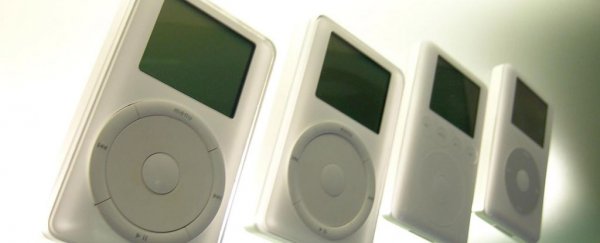Symbolically at least, the MP3 is now officially dead, after the German research institution that helped to develop the famous (and equally infamous) standard announced that all licensing for the file format had been terminated.
While any MP3s in your possession will still play fine on any devices that support the audio format – no matter how you acquired them – it signals the end of the road for the ubiquitous music file, which will no longer be officially supported.
Part of the reason for the inevitable decline is that, while MP3s may still occupy the music libraries of millions of listeners around the world, from a technological standpoint, the format has been eclipsed by later audio codecs that simply do a better job of compressing music into small, manageable file sizes – a point that its original creators fully acknowledge.
"Although there are more efficient audio codecs with advanced features available today, MP3 is still very popular amongst consumers," the Germany-based Fraunhofer Institute for Integrated Circuits explained in a recent announcement signalling the end of the MP3 licensing program.
"However, most state-of-the-art media services such as streaming or TV and radio broadcasting use modern ISO-MPEG codecs such as the AAC family or in the future MPEG-H. Those can deliver more features and a higher audio quality at much lower bitrates compared to MP3."
For its part, Apple – a company whose market dominance today was in no small part fuelled by the success of its MP3-playing iPod in the early 2000s – had moved on long ago. For many years, the company has used AAC as its default audio codec over MP3 in iTunes.
Of course, to discuss these kind of technological contrasts may largely only be of interest to dedicated geeks and audiophiles, as with the rise of music-streaming services like Spotify, many music listeners are probably less concerned or aware of the specific audio format that's delivering their tunes, since much of that functionality is neatly handled by apps now.
But it's hard to underestimate the significance of the MP3 in the so-called Napster era around the turn of the century, where illegal music file-sharing via the internet enabled millions of computer users to download songs for free, fundamentally changing the music industry forever.
In those heady times, before the music industry had established legal avenues to sell digital content, such as Apple's iTunes Store and modern streaming services, the MP3 was perfect for file sharers, because what it may have lost in audio fidelity, it made up in portability, thanks to its high compression.
The format was originally developed by engineers as a way of transmitting audio over telephone lines, but struggled to find a home in the mainstream, with many early MP3 players failing to take off in the market, until the success of the iPod helped make the MP3 a household name.
But while MP3's compression capabilities may have been the format's chief benefit – reducing CD-quality files up to 95 percent in size – it may also have been the format's downfall.
Research conducted in 2016 found that the audio codec's compression strengthened neutral and negative emotional characteristics in music, while weakening positive emotional characteristics.
Part of the problem here is the way in which MP3 was developed around the principle of psychoacoustics – the science of how we perceive sound.
In theory, the codec achieved much of its data size reductions by cutting out hidden background noises that are supposedly inaudible to the human ear – but while psychoacoustics has progressed in the past two to three decades, the pioneering MP3 format has not.
"The engineers who developed the MP3 were working with incomplete information about how our brains process sonic information, and so the MP3 itself was working on false assumptions about how holistically we hear," Andrew Flanagan reports at NPR.
"As psychoacoustic research has evolved, so has the technology that we use to listen. New audio formats and products, with richer information and that better address mobile music streaming, are arriving."
But while MP3 might have been outmoded by new audio formats and products like music streaming services that didn't exist decades ago, the official death of MP3 could ironically end up giving the standard a new lease on life.
Now that MP3 is free of any licensing prohibitions that limit how the codec can be distributed, programmers who were previously barred from legally including MP3 support with their products are now starting to bundle the format – meaning MP3 might not be quite dead after all.
It might not offer as much hipster cool as the vinyl renaissance, but hey, at least it's something.
